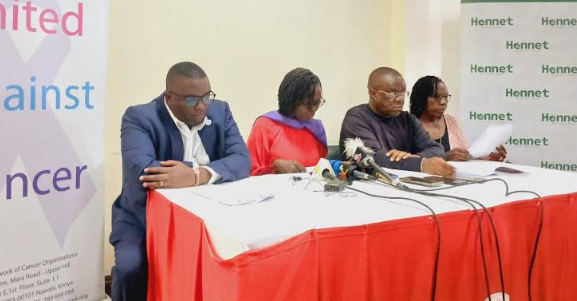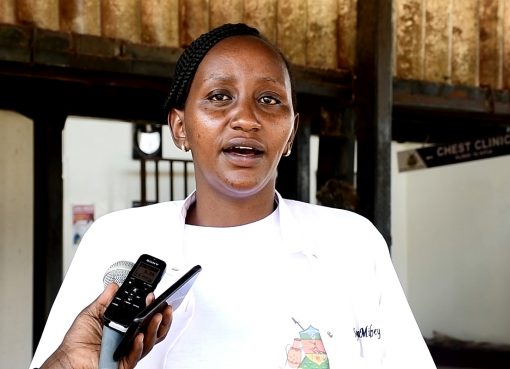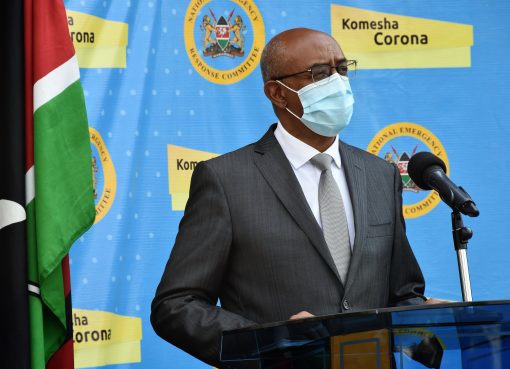Cancer patients and welfare organisations have called on the government to address key concerns regarding transitioning from the National Health Insurance Fund (NHIF) to the Social Health Authority (SHA) and its impact on cancer and Non-Communicable Disease (NCD) care in Kenya.
Speaking Tuesday during the commemoration of World Cancer Day, the groups called on the government to give priority to cancer awareness sessions, which will encourage many people to get screened for early detection, which saves lives.
Led by the Kenya Network of Cancer Organisations (KENCO), various groups involved in cancer awareness participated in the session, including the Cancer Survivors Association of Kenya (CSAK), NCD Alliance Kenya (NCDAK), several Cancer Survivors, other Kenyan civil society, and the Kenya Society of Haematology and Oncology (KESHO).
KENCO gave an update regarding the current state of cancer in Kenya and sensitised about cervical cancer.
KENCO Chairman Elo Mapelu said that Kenyans called on the Ministry of Health to address concerns regarding SHA cover for cancer patients.
According to Mapelu, many Kenyans don’t have adequate information on how the cover works, saying that there is a need for sensitisation forums across the country.
KENCO Chief Director Phoebe Ongadi voiced frustrations regarding deaths occasioned by cervical cancer, stating that 10 deaths occur daily due to this disease.
“Each and every year, we are losing women to cervical cancer, and yet it is one that can be prevented,” she emphasized.
Ms. Emma Kariuki, a cervical cancer expert at Women for Cancer Organisations, stated that cervical cancer is the most prevalent form of cancer in Kenya, followed by breast cancer, and that the most disadvantaged are women.
She mentioned that the cause of cervical cancer is Human Papillomavirus (HPV), which is sexually transmissible through sexual intercourse with an infected individual.
Other factors at risk, according to Ms. Kariuki, include having many children at a tender age, having numerous sexual partners, beginning sexual intercourse at a tender age, and consuming tobacco, among others.
Symptoms of cervical cancer, according to her, include having an abnormal discharge during intercourse, postmenopausal bleeding, an unusual discharge, and discomfort during sexual intercourse.
Her advice to parents is for them to have their daughters receive the HPV vaccine between ages 10 and 14, for it has proven to be a significant tool in preventing the HPV virus and, in turn, preventing the risk of contracting cervical cancer.
In terms of prevention, as emphasized by the World Health Organisation (WHO), she concurred with future follow-up in case of following through with prevention.
“About 90% of our girls at age 15 must be vaccinated. With all girls getting the HPV vaccine, 90% of cervical cancer can be reduced. So, we have an opportunity with 70% of all 25-49 years, who must be screened for cervical cancer, and 90% of those with cervical cancer complications must receive treatment. That is how cervical cancer will be addressed,” Ms. Kariuki added.
Ms. Kariuki said that the factors that contribute to low HPV vaccination uptake include cultural resistance, lack of awareness, cost, and inaccessibility in a few regions, among others.
World Cancer Day (WCD) is led by the Union of International Cancer Control (UICC) and was established in the year 2000. Its objectives include raising awareness about cancer, encouraging prevention, and mobilising action to address the global cancer pandemic.
Through collaborative efforts. WCD envisions a world where billions of cancer deaths are prevented and access to life-saving treatments is equitable for all.
By Gabriel Mwangi and Emmanuel Mbuthia





